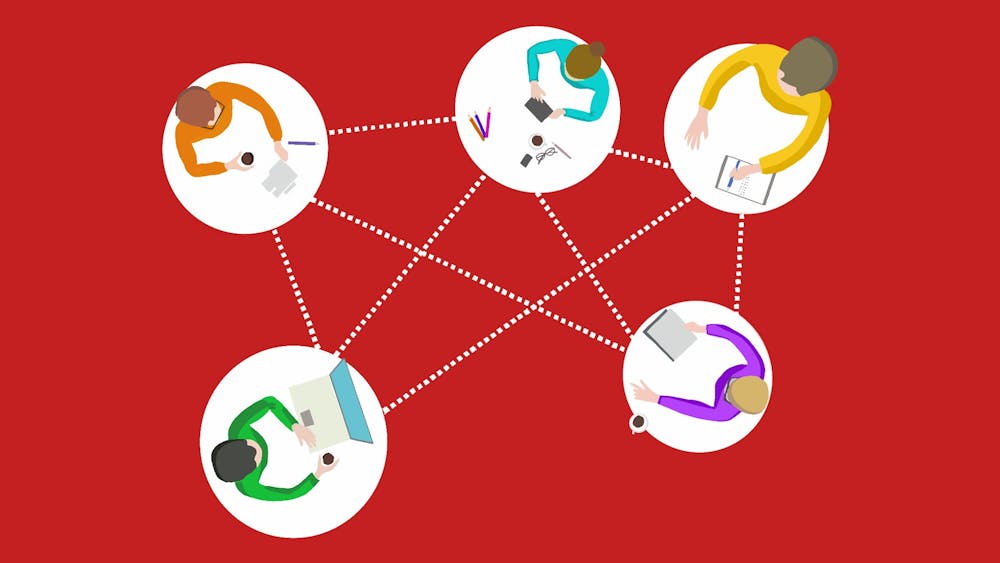The academic experience — all-nighters in the library, lab experiments, class field trips and connecting with professors during office hours — are all aspects of in-person instruction that have been redesigned due to the COVID-19 pandemic. Now, students are adjusting to an online learning environment as virtual instruction has become widely prevalent in the education process over the past 11 months.
Elon University has been using remote instruction in some capacity since the pandemic began, even after the school announced its Ready & Resilient plan for in-person classes on June 8, 2020. The plan offered a remote instruction option for students and faculty who provided documentation regarding a disability, health-related accommodations or unique circumstance approved by Disabilities Resources.
According to university registrar Rodney Parks, around 180 students were approved for remote learning in the fall. Individual requests for remote learning are still under review for the spring semester, but the registrar reported that 432 undergraduate students are currently approved in the system for remote learning, primarily for Winter Term with a low number of remote requests for the spring as of mid-January.
Remote learning allowed flexibility for students in various circumstances. Sophomore Caroline DiFrango opted for remote instruction for a more consistent schedule and to limit potential exposure to the virus so she can protect her family.
“I was super fearful I would bring COVID home to my immunocompromised family,” DiFrango said. “I was dealing with some mental health issues that had been exacerbated by the pandemic. With my doctors being in Richmond and the campus climate shifting constantly, I thought it best I stay somewhere unchanging until I was healthier.”
Remote learning brought on obstacles for students nationwide, including sophomore Alicia Clanton.
“Remote learning was definitely rough. My days had no structure and I lost all my time management skills,” Clanton said. “It’s hard for me to focus on work in a home environment, and whereas at Elon I could resolve that by finding a quiet spot away from my dorm, the libraries in Maryland are still only open for drive-thru services. I felt disconnected from my classes, especially when it came to group work.”
The remote learning policy allows students who were previously approved for remote instruction in the fall semester to continue studying remotely throughout the spring semester if they choose. Clanton said she grappled with whether to continue studying remotely or return to campus.
“If you asked me two months ago, I would’ve told you there was no way I was staying home another semester,” Clanton said. “On one hand, I miss the freedom of living on my own, and I learn better when I’m actually at school. I also miss my on-campus job, since the school decided to stop allowing remote work toward the end of last semester.”
Clanton has worries about returning to campus due to rising COVID-19 cases in the country.
“As I get closer to the point where I need to make a decision, I’m starting to have doubts,” she said. “It doesn’t feel like it, but the rate of COVID cases is much worse than it was in August when I originally decided to stay home. I might run the risk of feeling socially isolated if I go back to campus.”
The virtual learning experience also allowed Clanton to reflect on what could be done to improve the process.
“I think the key to making remote learning less painful is to really make an effort to schedule your days and have the discipline to avoid distractions,” Clanton said. “That applies to college success in general, but it’s even more important at home because you’re in a relaxed environment and you’re surrounded by distractions.”
Disabilities Resources is working diligently to accommodate students this upcoming semester, according to Zoe Nulty, the accommodations specialist.
“As many students will be learning remotely during the spring 2021 semester, we will continue to communicate and provide resources to them,” Nulty wrote in an email to Elon News Network. “They will have access to their accommodations, student mentors, as well as tutoring through Learning Assistance. Should their needs change, we are here to promote positive change and advocate for solutions,”
As DiFrango prepares to head back to campus after a semester of at-home instruction, she is hesitant about campus safety as COVID-19 cases rise around the country and in Alamance County.
“I am returning to campus for the spring,” she said. “What worries me most is just the shifting campus climate and the toll that may take on my mental health. It’s also just disappointing to see that not every student is taking it seriously, thus all my precautions may be in vain.”
Clanton remains undecided but is leaning toward another semester of remote learning.
“I have four more whole semesters at Elon,” Clanton said, “so I might just stick it out at home for another semester and make some changes to make online learning more manageable.”


